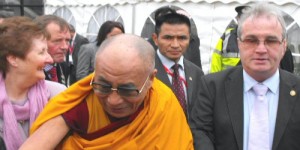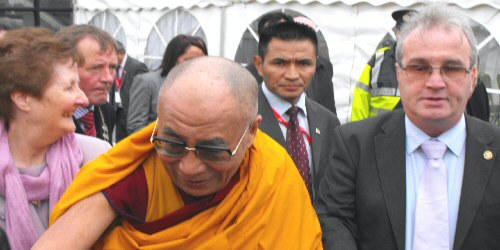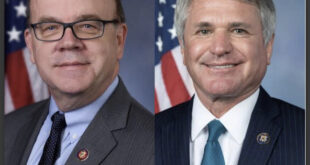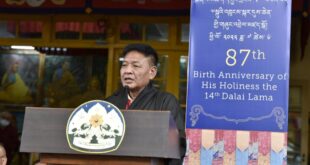MIND MOVES: Visit by Dalai Lama was an inspiration to us all, writes TONY BATES
Tony Bates, The Irish Times, Tuesday, April 26, 2011
HE CAME, he bowed and he conquered us with his smile. His Holiness, the Dalai Lama. His presence inspired us and touched something deeply human in each of us. He embodied compassion and reminded us there is a latent kindness in all of us that needs to be nurtured.

Thousands made the effort to travel long distances and sit in the presence of this iconic man. Perhaps he wasn’t quite what they expected. He appeared to be more wholesome than “holy”; he seemed to prefer to poke fun at his blind friend, Richard Moore – the man he called his “hero” – than to speak with gravitas about sacred truths; he challenged us to change our world, insisting that we could, and yet he never preached at us.
What struck me most was his message that “basic human nature is compassionate”. His optimism was an intriguing contrast to the pessimism that many of us feel when we are exposed daily to accounts of human selfishness, abuse and cruelty. He asserted this claim in spite of the fact that, since the late 1950s, his own country Tibet has been a victim of cultural devastation, torture and mass murder.
Compassion is basically kindness, with a deep awareness of the suffering of oneself and of other living things, coupled with the wish and the effort to relieve it. Although humans can engage in intensely cruel behaviour, compassion is one of the most important and distinctive qualities of the human mind. It has been identified more recently within psychology and studies of the human brain as a major healing process for our troubled minds and relationships.
At every stage of life compassion plays a central role in shaping our experience. When we first come into the world, we are totally dependent on the care and affection of others, especially our mother. One of the critical factors that determine healthy brain development during our early years is simple bodily contact with our mother or carer.
At times when we become physically ill or emotionally distressed, affection serves the healing process. If we have ever known such moments of pain, we know how important it is that the person looking after us shows affection rather than relates to us with a cold, purely clinical disposition.
Research has also shown that the way we relate to ourselves – whether we regard ourselves kindly or critically – has a major influence on our ability to get through life’s difficulties and create a sense of wellbeing.
In his writings, the Dalai Lama has emphasised the intimate connection between our emotional lives and our physical wellbeing. He has often quoted David Spiegel’s study at Stanford, which observed the benefits to patients suffering from severe cancer of sharing their experiences with one another on a deep emotional level.
He arranged for one group of patients to meet weekly and talk about their cancer, while the other was required only to attend for regular individual check-ups. At the end of 10 years, it was found that those patients who belonged to the support group had twice the life expectancy of those who did not.
When we are threatened as a species, our instinct is to reach out, both in the expectation of receiving help and to offer it. There is a natural capacity in us to empathise with another’s pain and suffering.
In saying this, the Dalai Lama does not deny that there are also destructive traits in our human nature. Aggression, ambition, even competition have a role to play in our development. With the right motivation behind them, these qualities can achieve wonders. But when they become divorced from our basic human feeling of concern for one another, their potential for destruction cannot be overestimated.
His message was to recognise that human nature is fundamentally compassionate and co-operative. By living a way of life that expresses our need to experience affection and show compassion to others, our actions take on a dignity, worth and meaning.
His visit was to remind us that there is a basic goodness in each of us. Fragile perhaps, needing practice if it is to blossom, but real nonetheless.
Tony Bates is founding director of Headstrong – The National Centre for Youth Mental Health (headstrong.ie)


